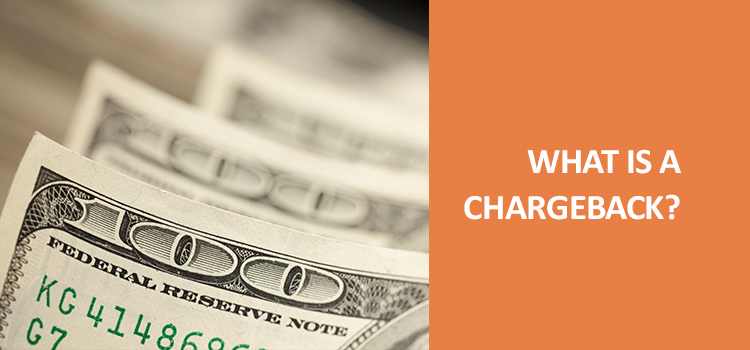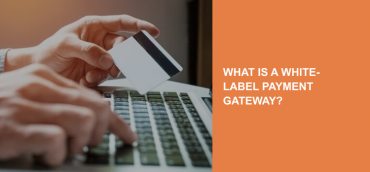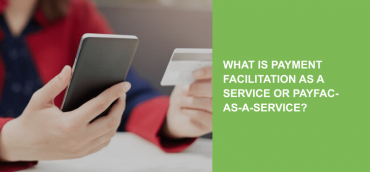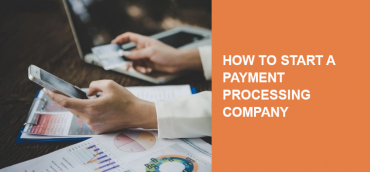From a $25 000 fine to a damaged processing history to a total closure of your merchant account, chargebacks are dangerous. Forewarned is forearmed. Today we’ll discuss what chargebacks are and how you, as a merchant, can prevent them.
What is a chargeback?
A chargeback is the reversal of a credit card payment that comes directly from the bank. Initially meant to protect customers, chargebacks are now often overused. However, they are still crucial for maintaining fair trade.
What is the purpose behind chargebacks?
- Enhanced customer’s safety. The risk of a forced reversal of funds prompts merchants to provide high-quality services.
- Chargebacks minimize crime and lead to merchants’ transparency. Thanks to chargebacks, customers can’t be expected to pay for something that was shipped in an improper state or never delivered.
- Chargebacks protect cardholders from criminal fraud. In a world where a data breach is mainstream among fraudsters, many cardholders face unauthorized transactions. The ability to dispute chargebacks on fraudulent credit card transactions allows fraud victims to recoup their money.
What is the difference between a chargeback and a refund?
Once the consumer is unsatisfied with a purchase, he can either apply for a chargeback or ask for a refund. Though similar, these two options affect your business in different ways. Let’s the core distinctions between chargebacks and refunds.
- Refund. The refund occurs when an unsatisfied client contacts a merchant directly. He asks for either a money return or a new product. For instance, a man who saw a defect on a brand-new shirt he ordered contacts a merchant. The latter can either ship a new shirt or send the purchase money back. That’s what we call a refund.
- Chargeback. In general, there are three reasons why customers apply for chargebacks. First, if the merchants ignore their request for a refund. Second, if a merchant declines a refund. Third, if customers dispute the purchase or argue that it was fraudulent. And here comes the third party. To apply for a chargeback, the customer reaches out to the eminent bank directly. The bank then has to decide whether the chargeback is reasoned. The merchant isn’t involved in the process. If the eminent bank finds the chargeback necessary, the funds are automatically withdrawn from a merchant bank account and are transferred to the client’s bank account. The merchant can’t do anything to prevent them. Now you see that refunds are less dangerous than chargebacks as they don’t affect business processing history.
How do chargebacks affect your business success?
Here are some major ways chargebacks affect your business success:
- Financial losses due to credit card network bans. The major credit card networks like Visa and MasterCard have developed own programs to monitor the level of chargebacks among their users (businesses in particular). When the amount of monthly chargebacks exceeds one hundred, the merchant is banned with a $25 000 fixed fine.
- The tainted processing history. Not only does payment processing history show your turnover but does also exposes your chargebacks and fraud ratio. Unfortunately, the majority of PSPs refuse to process merchants with high chargebacks and fraud levels. Why is it so? The reputation risks and financial bans are to blame. If the merchants go bankrupt, PSPs along with processing banks has to cover the possible financial losses.
- Imminent chargeback fees. That might seem outrageous, but you have to pay for every chargeback that occurs. Moreover, even if the chargeback was found invalid, you have to pay the fee. The average chargeback fee ranges from $15 to $50 per chargeback.
- The risk of a total merchant account closure. Though the last drop, such bans are applicable as well. If the merchant’s PSP or an acquiring bank find the level of chargebacks and fraud too risky, they have a right to close your merchant account
It is more than evident that taking chargeback prevention measures is crucial.
How can you safeguard your business from chargebacks?
Preventing chargebacks allows us to eliminate fraud and obstruct potential financial losses. Thus, that’s in the merchant’s best interest to integrate as high-quality chargeback prevention as possible.
As a PSP, we’ve developed Charge Advisor, the high-end fraud, and chargeback prevention software for our customers. Thanks to its high-end technology, 98% of our disputes were resolved in the merchant’s favor. Apply here to access Charge Advisor for your business.
Here are the three benefits you get from integrating Charge Advisor into your website:
- An immense transactions database from different business types allows Charge Advisor to identify fraudulent transactions and prevent chargebacks;
- Studying merchant’s historical data for accurate modeling, Charge Advisor automatically sifts out fraudulent transactions and minimizes the possibility of chargebacks;
- Charge Advisor lets you connect Sift Science to your internal tools and eliminate the need to switch between systems to make a decision;
- A model built according to the real-time machine learning methods for automatically adjust to your particular business needs;
- Charge Advisor guarantees improved payment conversion and traffic performance.
What are the other ways to prevent chargebacks?
Besides integrating fraud and chargebacks prevention software, there are other measures to prevent chargebacks:
- Create a clear Refund policy and Terms & Conditions pages. Creating detailed and clear Refund Policy and Terms & Condition pages is crucial. Though it takes time and lawyer’s consultation, it plays in your effort when the consumer applies for a chargeback.
- Provide top-notch customer support. The majority of consumers don’t want to conflict or reach out to banks. They ask for a refund first. Only once ignored by merchants, they take serious measures and apply for chargebacks. Thus, providing 24/7 customer support is in your best business’ interest.
- Embrace a credit card authorization hold. That’s quite a solution for businesses with a high average check amount. Travel agencies, antique stores, expensive software providers, e.g. are on the list. Thanks to the credit card authorization hold, the merchant could manually pick the right clients and sift the low-quality ones. Simply put, a merchant can verify a client good by a short phone call and then manually approve the transaction. That’s a very effective tool to nip the chargebacks in the bud. At Ikajo, we provide credit card authorization hold for free.
Summary
A chargeback is the reversal of a credit card payment that comes directly from the bank. Fraudulent activity and customer dissatisfaction with the product delivered are among the main reasons why the chargebacks occur. The high ratio of chargebacks damages your processing history and leads to financial bans. Thus, using fraud and chargeback prevention is in your business advantage.
Enhancing your customer support in line with creating high-quality Refund Policy and Terms & Conditions pages is also a must. Comment below if having any payment-related questions!





